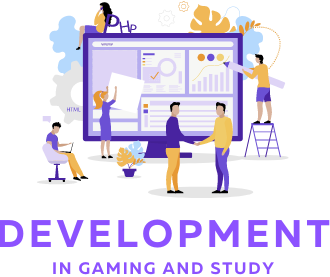Introduction
Online gaming has ambon 4d transformed from a niche hobby into a global phenomenon. With millions of players engaging in various genres, this digital entertainment medium has reshaped how we connect, compete, and collaborate. This article explores the evolution, impact, and future of online gaming.
The Evolution of Online Gaming
Online gaming’s roots can be traced back to the early days of the internet in the 1980s and 1990s, with text-based games and early multiplayer experiences like MUD (Multi-User Dungeon). As technology advanced, so did the complexity and variety of games available. The introduction of broadband internet in the early 2000s marked a significant turning point, allowing for more immersive experiences and larger player bases.
The rise of consoles, such as the Xbox Live service and the PlayStation Network, brought online gaming into living rooms. Simultaneously, the emergence of PC gaming platforms, like Steam, facilitated access to a plethora of online titles.
Genres and Communities
Online gaming encompasses a wide range of genres, from first-person shooters (FPS) like “Call of Duty” to massive multiplayer online role-playing games (MMORPGs) like “World of Warcraft.” Each genre fosters unique communities, often characterized by shared interests and camaraderie.
- Competitive Gaming: Esports has exploded in popularity, with professional players and teams competing in tournaments for substantial prizes. Games like “League of Legends” and “Dota 2” attract millions of viewers, turning gaming into a spectator sport.
- Casual Gaming: Titles like “Among Us” and “Fortnite” have made gaming accessible to a broader audience, promoting social interaction and casual fun. These games often incorporate elements that encourage cooperation and teamwork.
The Social Aspect of Online Gaming
One of the most significant aspects of online gaming is its ability to connect people. Gamers form friendships and communities that span the globe. Many players join clans or guilds, where they can strategize, socialize, and share experiences. Voice chat and streaming platforms like Twitch enhance these interactions, allowing players to communicate in real time and share gameplay with others.
The Impact of Online Gaming
Online gaming has far-reaching effects on society. It has become a platform for socialization, especially during the COVID-19 pandemic, when physical gatherings were limited. Additionally, it fosters skills such as teamwork, problem-solving, and strategic thinking.
However, online gaming also comes with challenges. Issues such as cyberbullying, addiction, and the need for online safety measures are critical discussions in the gaming community. Developers and platforms are increasingly prioritizing player well-being, implementing features to promote positive experiences.
The Future of Online Gaming
As technology continues to advance, the future of online gaming looks promising. Virtual reality (VR) and augmented reality (AR) are on the rise, offering even more immersive experiences. Cloud gaming services are also gaining traction, allowing players to stream games without the need for high-end hardware.
Furthermore, the integration of artificial intelligence (AI) is expected to enhance gameplay, creating more dynamic and responsive environments.
Conclusion
Online gaming has evolved into a multifaceted entertainment medium that transcends geographical boundaries. It fosters communities, encourages teamwork, and offers endless opportunities for creativity and engagement. As technology advances, the potential for innovation within this space is limitless, promising an exciting future for gamers around the world. Whether for competition, socialization, or sheer enjoyment, online gaming is here to stay, shaping the way we play and connect in the digital age.
